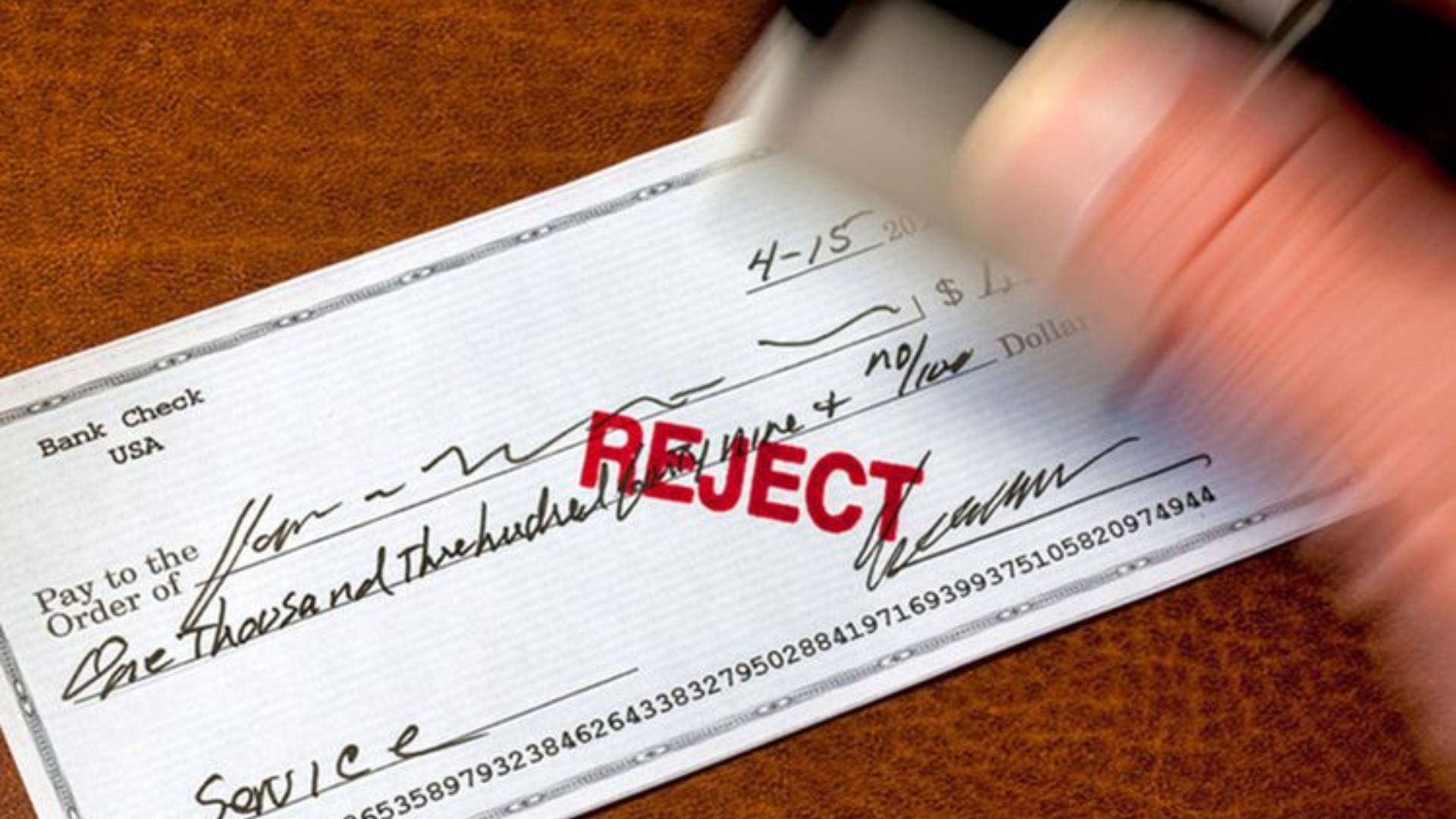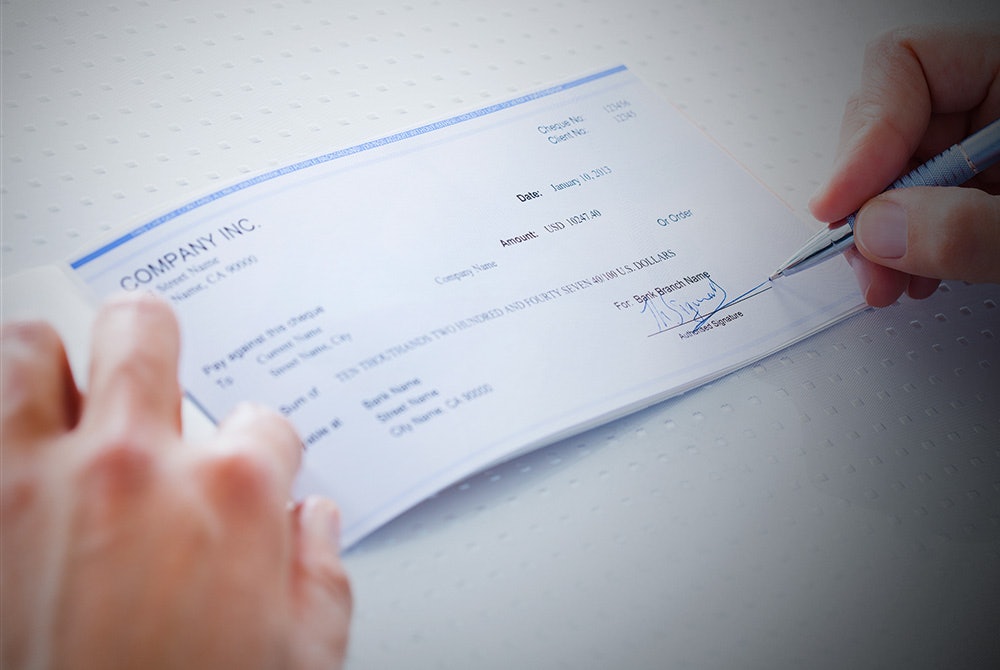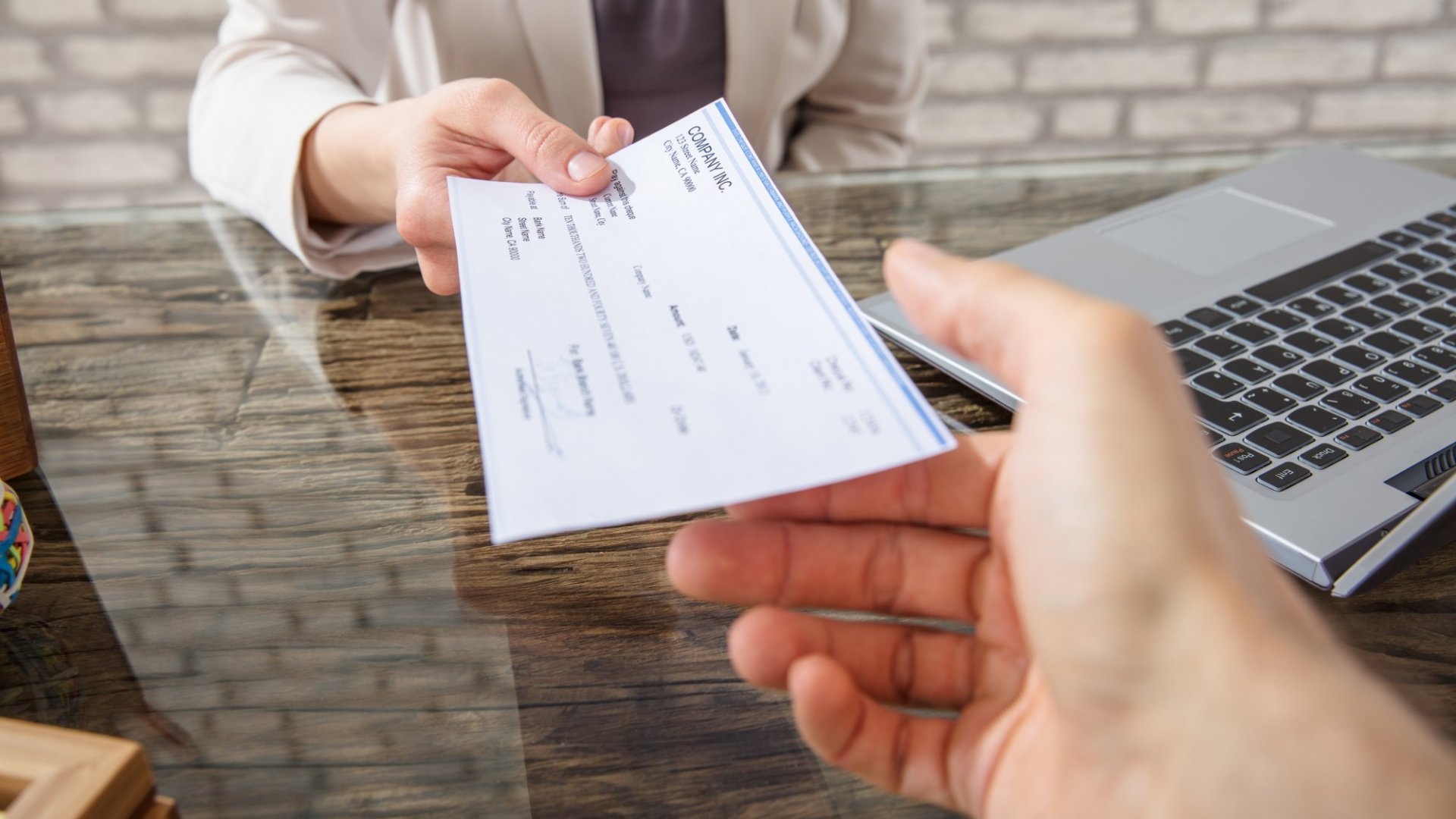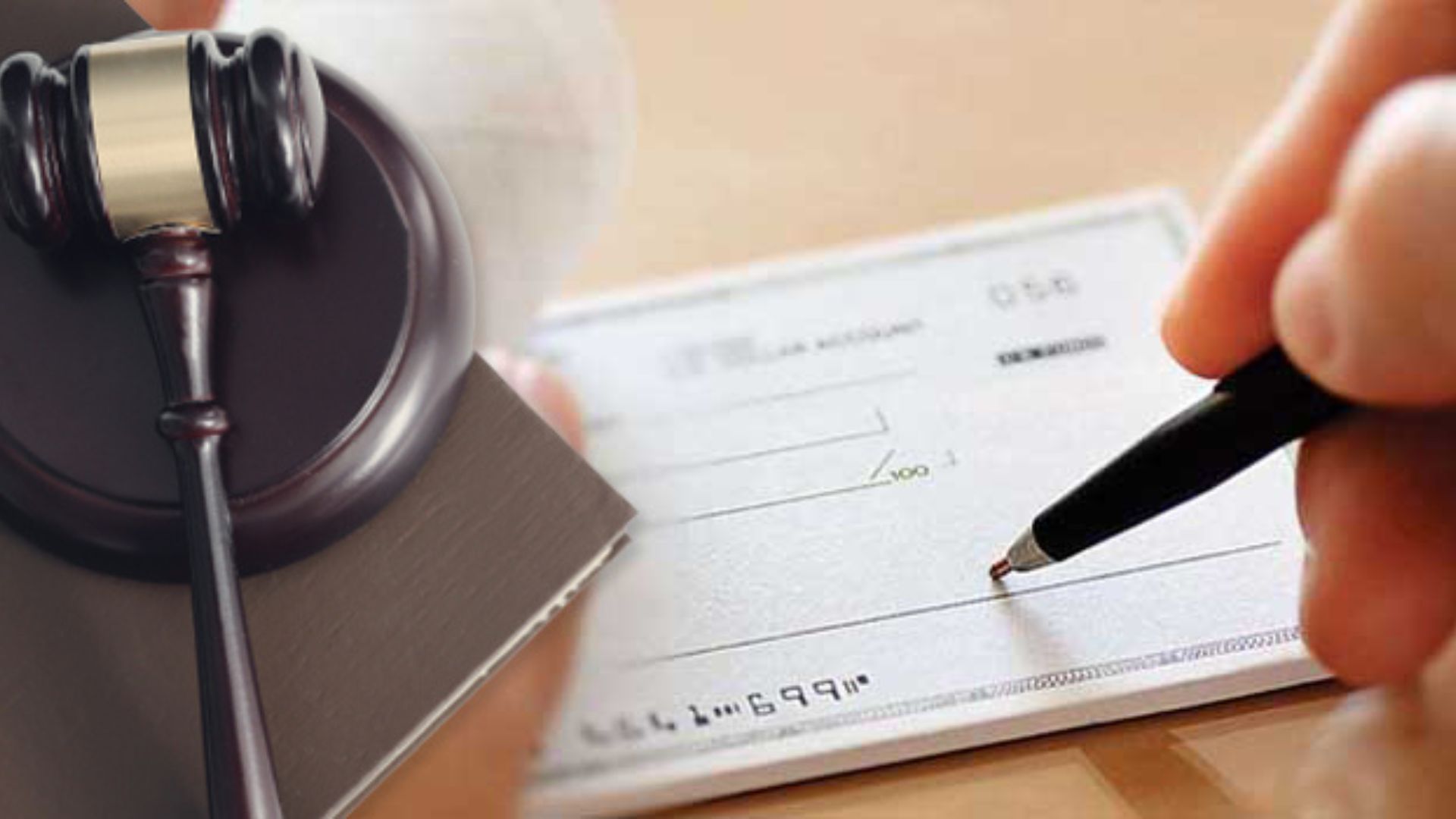How Should The Recipient Handle A Bounced Check?
When faced with the predicament of a bounced check, the recipient must swiftly navigate through the ensuing challenges to mitigate any financial repercussions. Understanding how should the recipient handle a bounced check is crucial in maintaining financial stability. The initial step in addressing this issue is to assess the reasons behind the check bouncing, whether it be insufficient funds or other discrepancies.
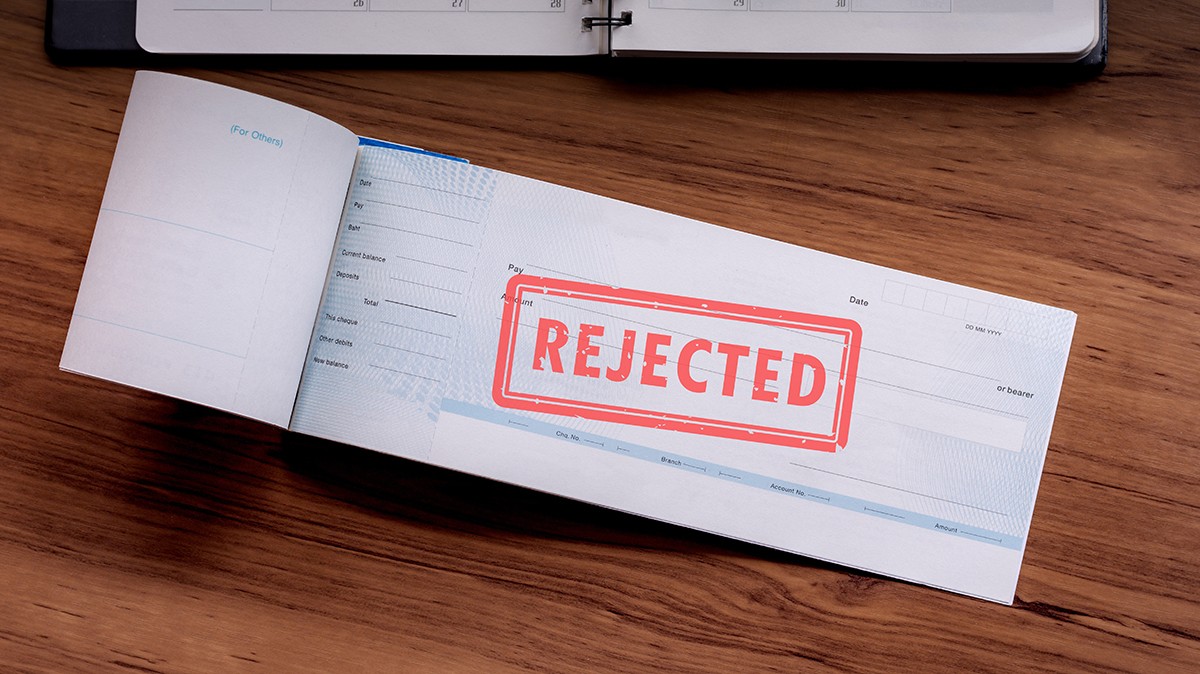
Morgan Barrons
Jan 25, 2024
A bounced check occurs when there are insufficient funds in the issuer's account, leading to potential financial complications for both parties involved. Understanding the causes and consequences of bounced checks is crucial for effective resolution.
From overdraft fees to potential legal repercussions, the impact can be substantial. In this context, the recipient plays a pivotal role in navigating the aftermath, requiring prompt and strategic actions to mitigate the effects of a returned check. In this article, we will learn about how should the recipient handle a bounced check.
What Is A Bounced Check?
It's called a "bounced check" when a check can't be cashed because the account user doesn't have enough money in the account to cover the amount of the check. There are checks that banks don't respect.
They "bounce" or return them instead of cashing them. The check writers are then charged NSF fees. It may be against the law to pass bad checks. Depending on the amount of the check and whether the action crossed state lines, the crime can be a misdemeanor or a felony.
People who write bad checks often don't mean to because they need to know their bank amounts need to be higher. Some people use overdraft security or add a line of credit to their checking accounts to keep checks from bouncing.
You could be charged overdraft fees, not be able to write more checks, and have your credit score go down if your check bounces. You can only pay sellers by check in the future if you write fewer checks that bounce.
There is a service called TeleCheck that helps a lot of stores figure out if a customer's check is good. The store will only accept your check as payment if the system links it to a past of checks that have been paid. They will ask for another form of payment instead.
What Happens When A Check Bounces?
When a check bounces, it means that the check cannot be honored by the bank on which it is drawn due to insufficient funds in the account or other reasons. In some cases, repeatedly writing bad checks or intentionally writing a check with the knowledge that there are insufficient funds could have legal consequences.
Laws regarding bad checks vary by jurisdiction, and some places have specific penalties for intentional check fraud. It's important to note that bouncing a check can have financial consequences and can create trust issues with the person or business to whom the check was written.
It's always advisable to ensure that there are sufficient funds in your account before writing a check or to explore other payment methods to avoid such situations.
How To Handle A Bounced Check?
If you bounce a check, you should call your bank right away to explain what happened and see if there are any fees. Then, you'll need to pay the amount you owe as soon as possible to keep getting into more trouble because of it.
Pay the person who wrote the check and let them know if the check bounces. If you want to know everything, you should also call your bank and ask if you will be charged any fees. If you want to get the money back, you should talk to the person who wrote the check.
If this problem keeps happening or the amount gets too big, consider looking into your legal choices. In that case, send a written claim for the amount that is owed, along with any fees that were charged because the check bounced.
Keep copies of everything you write. If the issuer still won't pay and the amount is less than the small claims court limit in the right place, a small claims case can be brought.
Why A Check May Be Rejected?
Several things can cause a check to bounce. You can bounce a check, whether you write it or receive it.
The Account Lacks Funds
- If there needs to be more money in the account to cover the amount written on the check.
- If there are not enough funds in the account to cover the payment, the check will be returned.
A Stop Payment Order Was Issued
- The owner of the account has asked the bank to stop paying on a specific check.
- One reason this might happen is if the check is lost or there is a disagreement with the payee.
The Check Was Not Written Properly
- It is filling out the check incorrectly, including numbers and words that don't add up to the same amount, missing signatures, or wrong times.
- In order to stop fraud or misunderstanding, banks may not accept checks that aren't complete.
Anticipation
- This means putting a future date on a check after the fact.
- If the person who is supposed to get the check tries to cash or pay it before the due date, it might not go through.
Bank Error
- When the bank processed the check, they made mistakes that caused problems like wrong debits or credits.
- If the bank finds a mistake in the deal, the check may be turned down.
Closed Account
- It is not possible to cash a check if the account it is taken from is closed.
- If you try to cash or pay a check from an account that is no longer open, you will be turned down.
Delayed Deposit
- The check was brought in for payment after the bank's set deadline.
- There may be rules about how long you have to deposit a check at some banks.
The Check Is Too Old
- Some banks may have rules about how long a check is good for.
- If you try to pay with a check that is more than a certain amount of time old, it might be refused.
Fraud
- If the bank believes the check to be fake or related to theft, it will not be cashed.
- This can include things like fake signatures, changed numbers, and other types of fraud.
Lazy Checkbook Balancing
- That person needs to keep isn't track of their account amount or spending.
- If the account user keeps an eye on things, they can write a check when there are enough funds.
What To Do If You've Bounced A Check?
There are some easy things you can do to fix the problem if you bounced a check by accident. Do these things.
Contact The Check's Recipient
As soon as you learn you've bounced a check, you should call the bank, business, or person who received it right away. Tell them what's going on, and be ready to talk about how you're going to fix the bad check.
Make The Payment
Make sure you have enough money to cover the check's amount plus any fees, like a returned check charge. After getting the right amount of money, you can ask the person who received the check to deposit it again. If you get a check that was returned, you can deposit it again, but usually only once.
Pay Your Fees
You'll need to pay the bank or credit union fees after you've made the payment. The most you'll have to pay for an NSF fee is between $20 and $40, depending on where you live.
Tell your bank that this is your first bad check, and they'll waive the fee. When you've been a good customer, banks will often do what you ask.
Make Changes To Your Banking Habits
Now that the problem has been fixed, you should look at how you do your banking in general to make sure this doesn't happen again. Here are some ideas on how to do that.
Keep Documentation
Writing bad checks will show up on your ChexSystems report, which keeps track of your banking information. Keep your bank records and receipts after the check payment to show that you paid the bill. This will help if you need to challenge something on your ChexSystems report.
Handling A Bounced Check - From The Issuer's Perspective
Follow these steps to fix the problem if you accidentally bounced a check:
Contact The Recipient
- In the event of a bounced check, it is essential to get in touch with the receiver right away.
- Tell them what's going on, say sorry for any trouble this may have caused, and talk about why the check bounced.
- Keeping the lines of conversation open helps people understand each other better and even stops problems from getting worse.
Make Payment
- As soon as you find out about the bad check, make the payment to fix the problem.
- Make sure you cover the original amount, and think about adding any extra fees or charges the receiver may have had because the check bounced.
Pay Fees
- When a check bounces, both the bank that issued the check and the bank that received it usually charge fees.
- Take ownership of these fees and pay them right away to keep the problem from getting worse.
- Check bounce fees can be different based on the bank and the rules in your area, so make sure you know what they are.
Revise Your Banking Habits
- Check your spending habits and make changes as needed to avoid more bounced checks.
- Make sure your account has enough money in it to cover the checks that you write.
- You can stay up to date on the state of your account by setting up alerts for low balances or overdrafts.
- Keep a closer eye on your spending and make sure you have enough money in your account to avoid overdrawing it by chance.
Consequences Of Bounced Checks
Overdraft Fees
A bank may charge the person who wrote the check an overdraft fee if the check bounces because there aren't enough funds in the account. This fee is charged for every lousy check, and it can add up very quickly, putting a lot of stress on the person's finances.
Their bank may also charge the person who received the failed check a returned check fee. This makes the situation even more expensive for everyone.
Negative Impact On Credit Score
Checks that are returned can also hurt the credit score of the person who wrote the check. The person who received the check may report it to credit bureaus if the person responsible needs to quickly take care of the problem and make good on the payment.
This will show up on the check writer's credit report as a negative item. This could hurt the person's credit score, which would make it harder for them to get loans, credit cards, or other financial goods in the future.
Legal Consequences
When a check bounces, the person who wrote the check may face civil consequences. Check fraud may happen if someone writes a check with insufficient funds based on the situation and their intent.
People who are caught writing fake checks could be fined, have to pay court fees, or even go to jail. The person who received the bad check may also go to court to get the money back, which will add to the check writer's legal and financial problems.
Bank Penalties And Consequences
There may be times when your bank takes money out of your account without authorization, which is known as "NSF" fees. This could happen even if your balance drops below zero.
While NSF fees are different for each bank, a poll by Bankrateshowed that the average is around $33. The bank could also close your account, which could make it harder for you to join another bank or credit union.
Negative Banking History
Most of the time, banks don't tell the national credit reporting agencies about checks that are returned. That being said, they may tell notable organizations like Early Warning Services and ChexSystems about checks that don't clear.
These groups are experts at checking facts. If you have a good record with these organizations, it might be easier for you to get a bank account in the future.
Potential Credit Hit
Most of the time, banks don't tell credit companies like Equifax, Experian, and TransUnion about checks that need to be clarified don't.
Of course, the buyer could. If the check was for a loan payment, for example, the lender might not expect to be paid, and they might report the missed or late payment to the credit companies. Bad things on your credit report could make your credit scores go down.
Account Closure
A check that bounces means that there needs to be more aren't funds in the account to cover the amount written on the check. The bank may decide to close the account because of this. This is being done to protect the stability of the banking system and lower the risk of more financial problems.
When a person's check bounces, their account is closed. This can hurt their finances and make it hard for them to open new accounts in the future. The account user may also have to pay fees for the bad check. To avoid these problems and keep a good relationship with your bank, it's essential to handle your money wisely.
Frequently Asked Questions
What Should I Do If I Receive A Bounced Check?
Contact the issuer immediately to resolve the issue.
Does The Recipient Get Charged For A Bounced Check?
Yes, the recipient may incur fees for a bounced check.
How Do You Handle A Returned Cheque?
Notify the payer and ask for a replacement check or alternative payment.
How Would You Handle A Bounced Check In Your Business?
Implement a clear check acceptance policy and communicate consequences for bounced checks.
Conclusion
I hope that you have understood how should the recipient handle a bounced check. Timely communication, collaboration with the issuer, and a clear understanding of potential fees and consequences are essential. Proactive steps, such as promptly contacting the issuer and discussing the situation, can contribute to a smoother resolution.
By addressing the issue promptly and thoughtfully, the recipient can not only minimize financial repercussions but also maintain a professional and cooperative relationship with the issuer. Handling a bounced check necessitates a balance of assertiveness and understanding, emphasizing the importance of open communication in resolving financial discrepancies.
